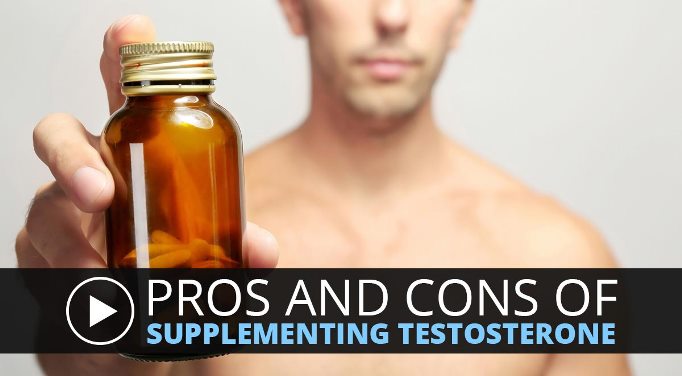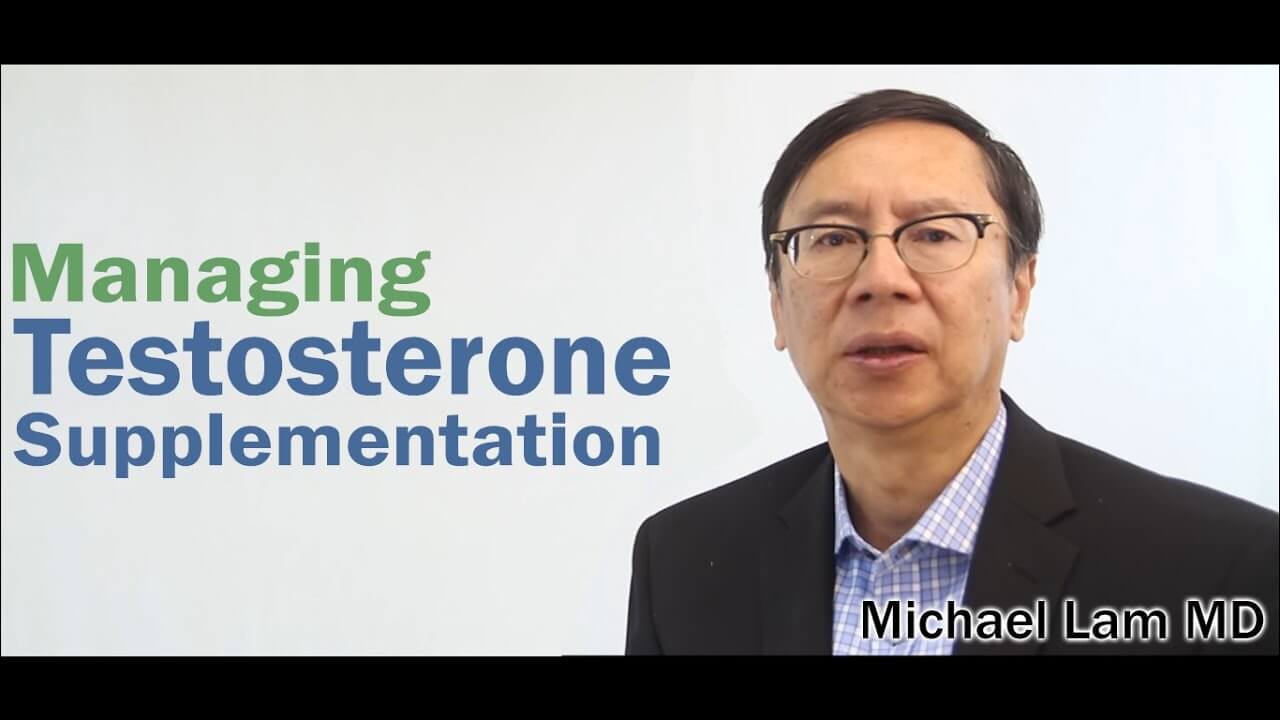
 Testosterone, in men, is directly linked to their sexual function and libido. Increasingly, more and more men have lower testosterone levels due to lifestyle, stress, and other factors. They find they are constantly tired and have no energy. The most popular approach to rectify the situation is testosterone supplementation. The purpose of this is to ramp up your metabolic rate so that energy is increased, to reduce fatigue, and to provide you with an overall sense of well-being. An added bonus is an increase in libido. Yet this approach could lead to excess testosterone in the system, or you develop testosterone tolerance. This could become problematic.
Testosterone, in men, is directly linked to their sexual function and libido. Increasingly, more and more men have lower testosterone levels due to lifestyle, stress, and other factors. They find they are constantly tired and have no energy. The most popular approach to rectify the situation is testosterone supplementation. The purpose of this is to ramp up your metabolic rate so that energy is increased, to reduce fatigue, and to provide you with an overall sense of well-being. An added bonus is an increase in libido. Yet this approach could lead to excess testosterone in the system, or you develop testosterone tolerance. This could become problematic.
Although testosterone is manufactured in the male sexual organs, few people realize it is also manufactured in the adrenal glands. Testosterone is an androgen which means it is responsible for the development of male characteristics, while still a fetus, and is necessary for the production of sperm later in life. It is also linked to puberty in boys and is responsible for growth, enlargement of the testes, penis, and prostate gland, and for the growth of pubic and body hair.
Low testosterone in men may be caused by pathology, in the testes, such as testicular trauma or cancer. This is called primary hypogonadism. It is treated using testosterone replacement therapy (TRT) as a standard. Fortunately this is not very common. However, the more frequent causes of low testosterone/hypogonadism comes from problems in the pituitary gland and/or hypothalamus in the brain and are collectively called secondary hypogonadism or hypogonadotropic hypogonadism. They may also be caused by depression/anxiety, head trauma, iron overload, anabolic steroid overdosing, diabetes, sleep deprivation, adrenal weakness, or some medications.
The problem with testosterone production and the resulting lower testosterone levels often arises because of adrenal fatigue.
The two adrenal glands situated towards the top of each of the kidneys are responsible for most of the hormone production in your body. As part of the hypothalamic-pituitary-adrenal axis (HPA) of the endocrine system, the adrenals receive chemical messages whenever the body undergoes stress. This stress may be due to work stress, the environment, physical stress such as an illness, or even psychological in nature. The result is that the adrenal glands produce higher levels of cortisol in order for your body to cope with this situation. Cortisol works at keeping your body alert and prepared to either fight or flee when you are presented with any situation perceived as dangerous.
During this period, the production of other hormones and bodily functions, not seen as crucial to supporting life, slows down or stops so that your body can deal with the ‘dangerous situation’ at hand. Once your body feels the danger has passed, cortisol and other hormone production can go back to normal as does your other bodily functions.
With prolonged stress, however, cortisol production, by the adrenal glands, increases steadily over a long period, having a major impact on the production of your other hormones, testosterone included. This leads to an imbalance in your hormones and too little testosterone. Additionally, cortisol also plays a role in the testes production of testosterone, as high levels of cortisol are an inhibiting factor.

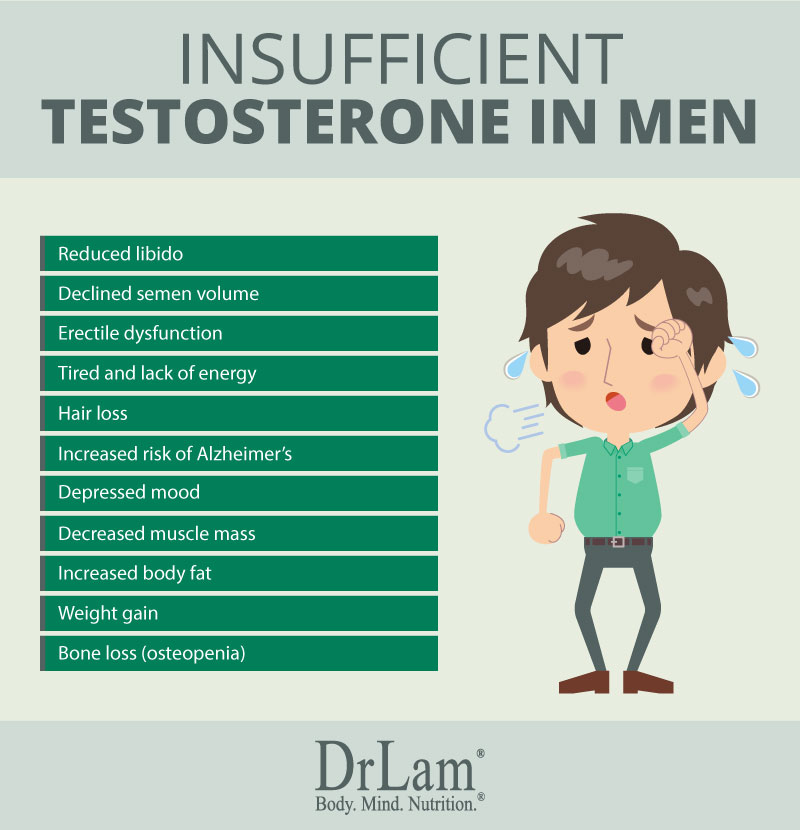
Excess testosterone levels are easily measured to give you an indication of whether your symptoms are due to lower levels of this hormone, or whether there is another underlying issue. The approach of most in the medical establishment, when low testosterone levels are the problem, is to administer testosterone in an effort to boost your testosterone levels. This does work to alleviate many of the symptoms you experience. By increasing your testosterone, you have more energy and drive, and your libido usually goes up as well.
Testosterone comes in various forms, including patches, gel, cream, pallet, and injection. Each delivery system has its pros and cons. Some people tolerate one method better than others. Some trial and error is often needed. However, there are side-effects with all of these methods. They include testicular shrinkage, polycythemia, breast enlargement, low sperm count. Many on TRT accept these side effects as part and parcel of the therapy.
Because of the possible sterility side-effect, TRT isn’t a good option for men who want to have children. Clomiphene citrate (CC pill, or Clomid) and/or human chorionic gonadotropin (HCG) can be considered. Both can increase testosterone production from the testes, leading to increased sperm production.
Other than direct testosterone replacement, low testosterone levels can be raised with Dehydroepiandrosterone (DHEA), pregnenolone, or both. Pregnenolone is called the mother of all steroidal hormones and is made in the adrenal glands. the chemical mother of DHEA. DHEA in turn is a precursor to other hormones inside adrenal glands, including testosterone.
DHEA and pregnenolone have the following benefits:
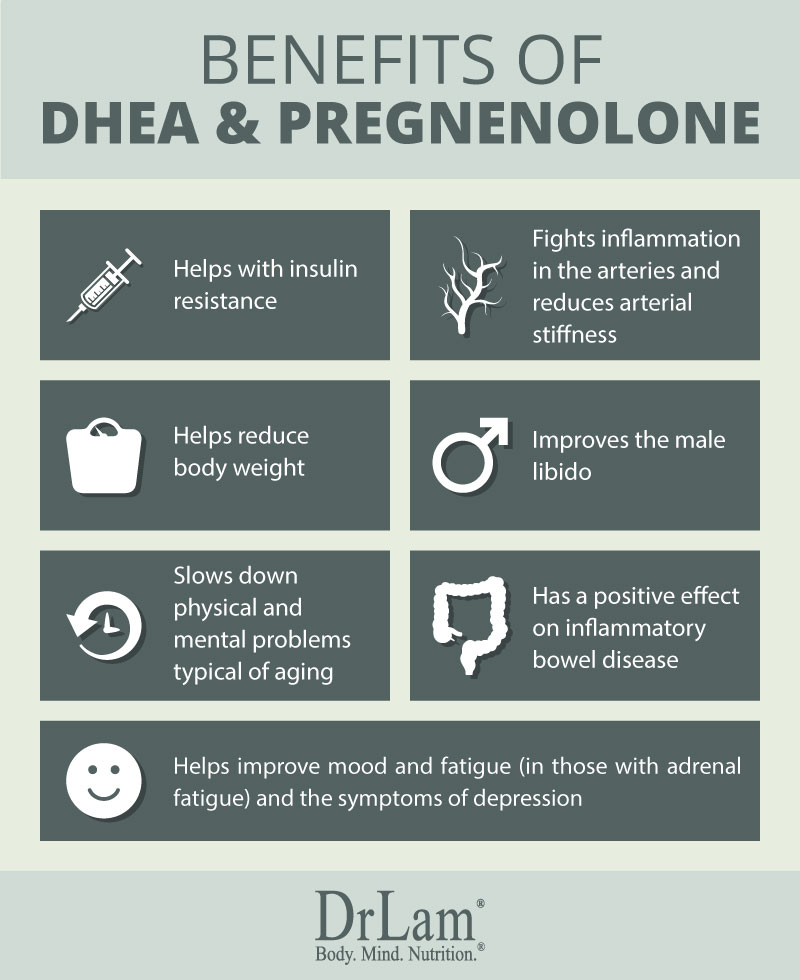
Certain prescription medications, anabolic steroids, and drugs can cause your body to have too much testosterone.
Tumors on the sex organs and adrenal glands could encourage your body to produce more excess testosterone than needed.
A boy that hits puberty early usually has excess testosterone in his body. The early onset of puberty is when a boy hits puberty before he is nine years of age.
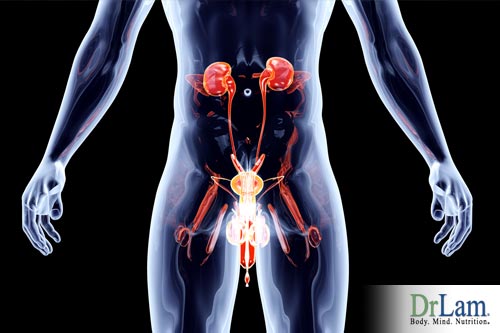 Congenital adrenal hyperplasia is an inherited condition where the adrenal glands are not able to make enough of a variety of hormones and creates more testosterone than what your body actually needs.
Congenital adrenal hyperplasia is an inherited condition where the adrenal glands are not able to make enough of a variety of hormones and creates more testosterone than what your body actually needs.
You risk excess testosterone when your testosterone supplement is taken or administered in dosages that are very high.
Excess testosterone could potentially devastate your body.
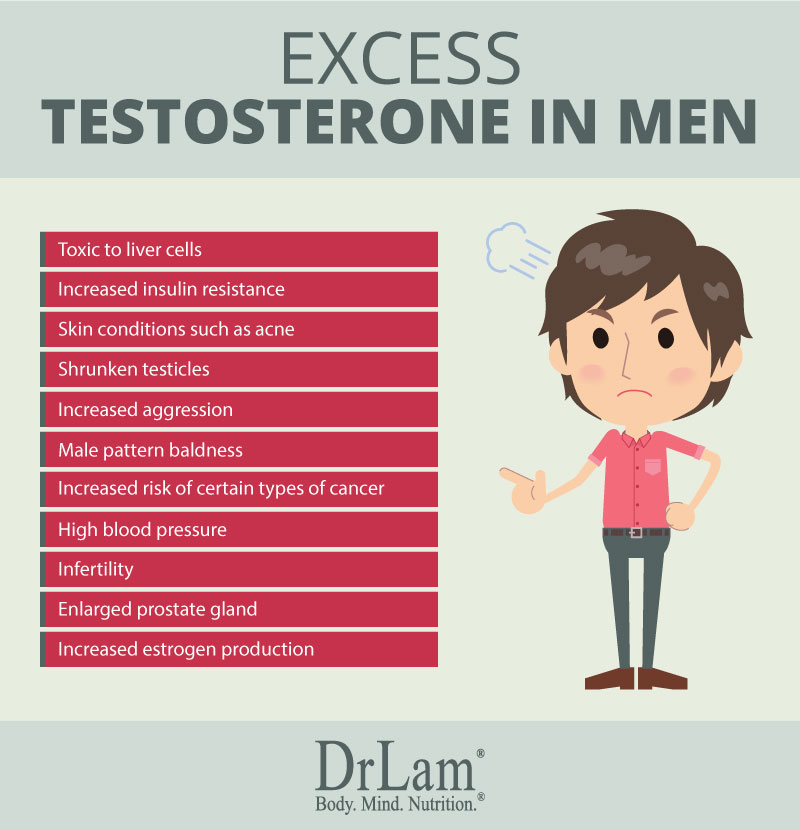
While conventional medicine might try to alleviate the symptoms associated with a hormonal imbalance, of any sort, or try to sort out the matter by means of various forms of hormone replacement therapy (HRT), the holistic approach deals with the root cause of the problem. In the case of the majority of hormonal imbalances, this is usually the adrenal glands and the result of one of the stages of adrenal fatigue.
Because of this, natural methods are looked at to restore proper adrenal gland functionality as part of a comprehensive recovery approach. Where the root cause of a problem is addressed, the symptoms associated with the problem tend to stabilize and improve with time. The adrenal glands and their functionality do not become taxed overnight, thus their improvement takes time also.
Abrupt cessation is not recommended and can lead to withdrawal and rebound. Always titrate slowly over time, and ensure the body has the proper tools to support any side effect from medication reduction to effect a smooth landing. Optimizing the adrenal glands will be an important key. As most of the adrenal glands’ problems are due to stress, lifestyle, psychological or environmental factors, addressing those issues is a step in the right direction.
Not only is a healthy balanced diet conducive to your overall health, but it aids adrenal health as well. There are a myriad of foods that actively help the adrenals in their functionality.
A variety of foods containing different fatty acids helps keep your hormones under control. They are necessary for hormone production while promoting weight loss, keeping inflammation in the body down, and boosting your metabolism. Great sources of anti-anti-inflammatory foods include avocados, salmon, and coconut oil (which have a natural antibacterial, antifungal, and fat burning effect). Great sources of omega-3 fatty acids besides salmon include tuna, mackerel, flaxseed, walnuts, and sunflower seeds.
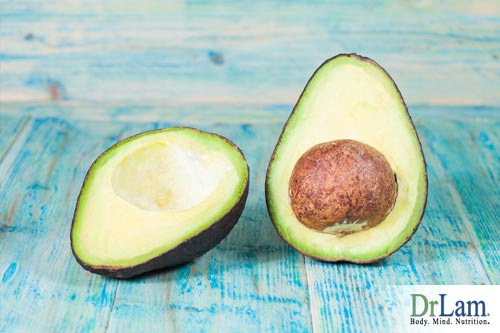 Avocado has the added benefit of improving your heart health, is high in potassium, and helps control appetite.
Avocado has the added benefit of improving your heart health, is high in potassium, and helps control appetite.
Refined carbohydrates as found in sugar, candy, store baked cakes, corn syrup, etc. should be avoided as they spike insulin triggers. Healthy carbohydrates are to be found in fresh berries, leafy green vegetables, legumes, and citrus fruits. The added vitamin C is also great for adrenal support.
Diets high in refined sugar, contradict hormonal balance and contribute to obesity, diabetes, and heart problems.
Soy products tend to mimic the effect of estrogen and aid in reducing the production and effect of excess testosterone. Once in the intestines, soy is sometimes transformed into Equol (when the concentration of friendly bacteria in the gut is high enough) which reduces both the effect and production of testosterone.
There are, however, certain issues associated with soy products as over consumption tends to reduce collagen production. The high temperatures associated with factory production may result in cancer-causing substances. So, ensure your soy products are manufactured without the use of high heat. Naturally fermented soy products are best.
Leaky bowel does not only affect your digestive system, but has an impact on your hormones as well. It is also associated with adrenal fatigue. The majority of people with leaky bowel syndrome tend to have a shortage of good bacteria in their gut. Foods that contain high levels of natural, good probiotics include fermented foods such as kefir, yogurt, and kimchi, amongst others.
Repairing your gut’s lining is a step towards balancing your hormones, testosterone included.
Besides releasing endorphins, which are ‘feel good’ hormones, it helps stabilize cortisol production which in turn leads to the normalization of other hormone production. It is also good for your heart, muscle tone, and general well-being. Excessive exercise is not recommended as it can further adrenal weakness.
Stress is one of the major contributing factors to adrenal fatigue. Once the later stages of adrenal fatigue are reached, lower, cortisol production, and accompanying hormonal imbalance, are created.
One can not always remove stressful situations, but much can be done to manage them. Consider meditation, yoga, or tai chi. Taking arts and crafts classes also can take your mind off stress.
It is usually recommended that we sleep for at least eight hours each night. Sleep, however, is one of the factors that increase testosterone. It is, however, not recommended to sleeping fewer hours per night as it can worsen adrenal fatigue.
There are a number of herbs available that either block or suppress excess testosterone production. These herbal supplements are available as powders, teas, tinctures, capsules, and in powder form.
Besides lowering testosterone levels, Saw Palmetto may encourage both prostate health and help in the treatment of benign prostatic hyperplasia. It is also said to stimulate urination. The fermented form is best.
Check with your medical practitioner before using this herb, if you use blood thinners, as it may increase your risk of bleeding. Some users also encounter abdominal discomfort.
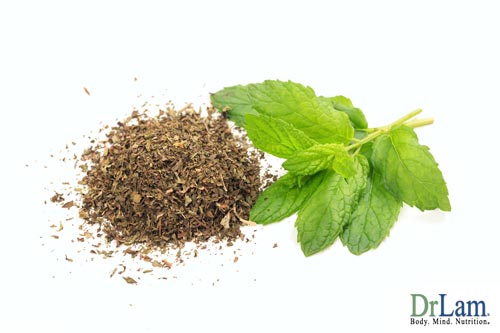 Spearmint lowers levels of free testosterone in your blood.
Spearmint lowers levels of free testosterone in your blood.
Black Cohosh is an anti-androgenic and helps decrease testosterone levels in your body. It is also great at managing your cholesterol levels.
Black Cohosh should not be taken by those that have liver conditions and it may increase your risk of developing blood clots. It also has possible side effects such as an upset stomach and headaches. It can also increase estrogen load and worsen any estrogen dominance.
Chaste Tea, also known as Chasteberry, reduces testosterone levels because of its anti-androgenic effect on the body.
Those who are on antipsychotic drugs, or who take medications for Parkinson’s Disease, should not take Chaste Tea without first consulting their medical specialist as there are possible adverse interactions. Some people may also develop adverse reactions when taking Chaste Tea. These include dizziness, abdominal pain, and skin rashes.
It is always advisable to consult with a healthcare specialist before embarking on any sort of herbal supplement in order to verify the dosage you need to use as well as discuss the possible contra-indications faced due to the particular medications you may be using or the state of your health at the time. Self-dosing is thus not considered a good idea.
Testosterone overload and toxicity is a clinical problem prevalent among men who are on testosterone replacement therapy. Long term use can lead to excess testosterone. Adrenal fatigue sufferers should be very careful using testosterone because of the body’s intrinsic weakness and long term development of resistance. Withdrawal symptoms are particularly problematic. Because low testosterone can self correct in a setting of adrenal fatigue, once adrenal health is restored, testosterone replacement should be considered a last resort option. Excessive testosterone can have many negative clinical effects, most of which resolve when testosterone load reduces. In rare cases, it can lead to other hormonal imbalances that are hard to resolve once the hormonal circuits are deregulated. Despite the many possible benefits of testosterone, extreme care should be conducted prior to embarking on any testosterone replacement program, and a clear exit strategy should be in place to avoid possible testosterone overload.
© Copyright 2017 Michael Lam, M.D. All Rights Reserved.
